Sleep Apps are changing how we fall asleep thanks to technology. Without a doubt, tech has created a bunch of conveniences in our lives these days. I’ve written about using tech to create a paperless life, and now because of technology, we can now monitor and improve how we sleep. It’s one of those activities that you don’t have to explain or understand, no matter what country you live in or what culture you are a part of. We all know what it is, and that the body needs it in order to have a healthy life, at the utmost to prevent life-changing medical and psychological conditions. And simply to be productive from day to day. Without a doubt, it is essential for optimal body and mind function. Without it, we can’t perform at our best, we can’t think clearly, and sometimes, may even jeopardize our health.
The Basics on Sleep
Science says we require seven to nine hours of sleep daily. If not an adult, the requirement is even higher. For younger humans, it’s essential for growing bodies. When we sleep, we sleep in stages. These stages go from the starting stage to being fully asleep. See the chart below. It outlines the different stages of sleep. Before going further into sleep apps, let’s expand on each stage to better understand what really happens when we close our eyes and do the one thing that can truly rejuvenate the body.
The 4 Stages Of Sleep
NREM Stage 1 Sleep
In stage 1, you are transitioning from being awake and falling asleep. Think about when you are in bed at night getting ready for sleep. What happens each time you prepare for sleep? The body relaxes, the brain empties as it slows down along with heartbeat and eye movement. At this stage, the brain is still actively functioning, but sleep is taking hold. It’s not surprising that someone in this first stage of sleep would say they are not asleep yet, if jolted.
NREM Stage 2 Sleep
This is the preparation phase for stage 3. You are less aware, body temperature drops, and eye movement minimizes as awareness disappears at this stage. The brain also produces brain waves known as theta brain waves, also known as sleep spindles. These spindles are brain activities that happen during light sleep. Spindles are also said to be electrical. They occur throughout the brain during this stage of sleep. It’s also said, spindles are linked with memory processing.
NREM Stage 3 Sleep
This stage of sleep is deep sleep. In stage 3 blood pressure drops, breathing slows and muscles repose. While the brain produces theta brain waves in stage 2, in stage 3, it produces delta waves. Also known as delta sleep. When the brain enters this phase, the sleeper is unaware of environmental noise or activities.
Research suggests that this stage of sleep is restorative. It’s also said to remove substances from the brain that contribute to dementia and Alzheimer’s.
REM Stage 4 Sleep
Except for sleep difficulties, during a typical night sleep, the body enters REM sleep ninety minutes after falling asleep. In this stage, the body is relaxed, and brain activities increases. The brain now produces beta and alpha brain waves, which are common brain waves when awake. Alpha waves when the body is relaxed and inactive. Beta waves when the body is conscious and in a waking state.
Besides this being the stage that true sleep occurs. It’s also where dreams and the ability to be imaginative happen as well.
The Benefits of Sleep
The Benefits of a good night’s sleep
Understanding the different phase of sleep helps to see what happens to the body as we fall asleep each night. It also helps us understand why sleeping well matters. A good night’s sleep can improve so many facets of our lives. Here are two major benefits to consider.
Benefits your mind
Your brain can function at its optimum when you have enough sleep. A good night’s sleep may help to remember details and staying focused. During REM (rapid eye movement) sleep, your brain replenishes the neural networks essential for learning, memory, and problem-solving.
These brain connections play a role in everyday abilities as well, including performance in daily tasks like school or work.
Benefits your body
It’s not surprising people who are constantly sleep deprived are more prone to hypertension, heart disease, and stroke. Sleep influences the immune system. Sleep deprivation can lead to an infection or the likelihood of illness.
Here is another benefit to the body. Maintaining a healthy body weight also helps with getting quality sleep. As an example, with poor sleeping patterns, the body will feel hungrier and have more unhealthy urges.
The Ultimate Sleeping Tool Of The 21st Century
When it comes to sleep, nothing can do it for you. Finding a bed and allowing the body to rejuvenate while sleeping is the basic element of sleep. Honestly, there are no shortcuts for sleep.
However, what’s available today are tools that can help us fall asleep, track our sleep and support our efforts to get quality sleep daily.
Sleep Apps
Many people’s waking life and, more recently, their sleep routines have become dependent on their smartphones. In the United States, over 77 percent of adults own a smartphone. Smartphones are used for several things, including news, social networking, games, calendars, and even promoting sleep.
One out of every three Americans, according to the Centers for Disease Control and Prevention (CDC), does not get enough sleep. Sleep apps could be an effective tool for helping people sleep better. A sleep app might be worth looking into if you’re having difficulties falling asleep or suspect you are sleep deprived.
Because of the advancement of technology, sleep apps are getting increasingly popular, and they all seek to help you fall asleep, remain asleep, and track your sleep patterns. Some sleep apps use colors and graphics to help you relax, as well as peaceful music and nature noises. Others use white noise, hypnotic techniques, and guided meditation imagery.
The act of sleep can be inexplicable. All we know is that we need it and without it, we risk issues we want to avoid. Sleep-tracking apps conversely can tell you when you’re awake and asleep, as well as what happens in between.
Here are some pros and cons of using sleep applications.
Pros
Research discovered a variety of smartphone apps that incorporated relaxing visual images, music, nature sounds, white noise, and hypnotic recordings to aid sleep. Also, when you use sleep apps, basic statistics can track the number of consecutive days of sleep, minutes meditated, and sessions.
It also encouraged users to be more attentive to making bedtime a priority — or to seek medical care for sleep-related difficulties .
Con
Researchers found that while these apps were quick and easy to use, the noise and light production could disrupt sleep. They also doubted the accuracy of sleep tracking apps.
Disclaimer:
According to research, no app can provide objectively accurate sleep analysis or duplicate the experience of a typical sleep lab. However, you may use them to spot trends and patterns that may help you sleep better.
Sleep-tracking apps and devices can help you gain a basic picture of your sleep, but don’t use them to decide about your sleep health.
Speak to your doctor if you feel you’re getting enough sleep but still feel tired during the day, or if you’re having difficulties falling or staying asleep.
6 Of The Best Sleep Apps To Consider
We know the discipline of promoting regular sleep patterns and excellent sleeping habits as sleep hygiene. Sleep hygiene practices include going to bed and waking up at the same time every day, avoiding enormous meals, coffee, and alcohol before bedtime, and quitting smoking completely.
Using a sleep app as part of your sleep hygiene practice may also help to get that 7 hours of sleep. Here are 6 of the best sleep apps to try.
1. Awoken - Lucid Dreaming Tool
If you’re like most people, you don’t know when you’re dreaming and don’t remember most of your dreams. Lucid dreaming is a form of sleep in which the dreamer is aware of their environment while dreaming. Awoken is an app for lucid dreaming and dream awareness that combines a journal and practice exercises to help achieve lucid dream awareness.
Good to Know: This app is available on Android only and its cost is free.
2. Sleep Cycle - Smart Alarm Clock
The Sleep Cycle Alarm app uses sleep tracking to keep track of sleeping patterns. According to the Sleep Cycle Theory, the alarm wakes you up during light sleep. They accomplished this by setting a wake-up window.
The sleep app recognizes your movements while you sleep and wakes you up at the most convenient time in your sleep cycle. As a result, you could feel energized when you wake up.
Good to Know: This app is available on iPhone and Android | Free and paid version available. Paid is $29.99 per year.
5. SleepScore
Good to Know: This sleep app is available on iPhone and Android | Free trial with upgrade options of $59.99 Annually or $9.99 per month.
3. Sleepa
Sleepa includes a wide collection of high-definition sounds that can be mixed and matched to create relaxing ambiances, as well as a timer that will shut off the program automatically.
This sleep app also includes a more advanced in-app alarm clock that lets users set modest alarm warnings. There are 32 sounds to choose from, separated into four categories: rain, nature, city, and meditation, as well as three forms of white noise and the lesser-known pink and brown noise frequencies.
Good to Know: This app is available on iPhone and Android | Free with an in-app purchase option. $24.99 annually or $2.99 per month.
4. Relax Melodies - Sleep Sounds
It’s difficult for some of us to relax before bedtime. Relax Melodies is a sleep program that mixes sounds and melodies with guided meditation and brainwave beats to help you relax and fall asleep more quickly. You’ll never get weary of the same sounds because there are so many combinations to pick from.
Good to Know: This app is available on iPhone and Android | The cost is Free.
6. White Noise Lite
White Noise Lite may be the best sleep app for you if you wish to sink into a deep, peaceful sleep while listening to the sounds of ocean waves and calming repetitive sounds such as a burning campfire, swaying boat, and thunder. Calming sounds of guitar strum, bells and violin and more can also wake you up.
Good to Know: This app is available on iPhone and Android | The cost is free.
Summary
Nothing, not even an app, can truly help to get the required amount of sleep needed to function optimally. While questions have arisen regarding the accuracy of these apps, they can be a tool to achieve the results you want. If you feel an app can help, then use one. But also remember there are necessities that should be in place to sleep optimally. When trying to fall asleep, try to follow these guidelines:
- Avoid the use of electronics and the internet when trying to fall asleep. This includes social media and emails.
- Adjust the temperature of the bedroom to be within 65 and 70 degrees.
- Make sure the bedroom is as dark as possible.
- Avoid alcohol in the late evenings.
If a sleep app, in conjunction with one of the sleep apps above, doesn’t work, then it’s time to visit a sleep specialist to understand why you can’t fall asleep.





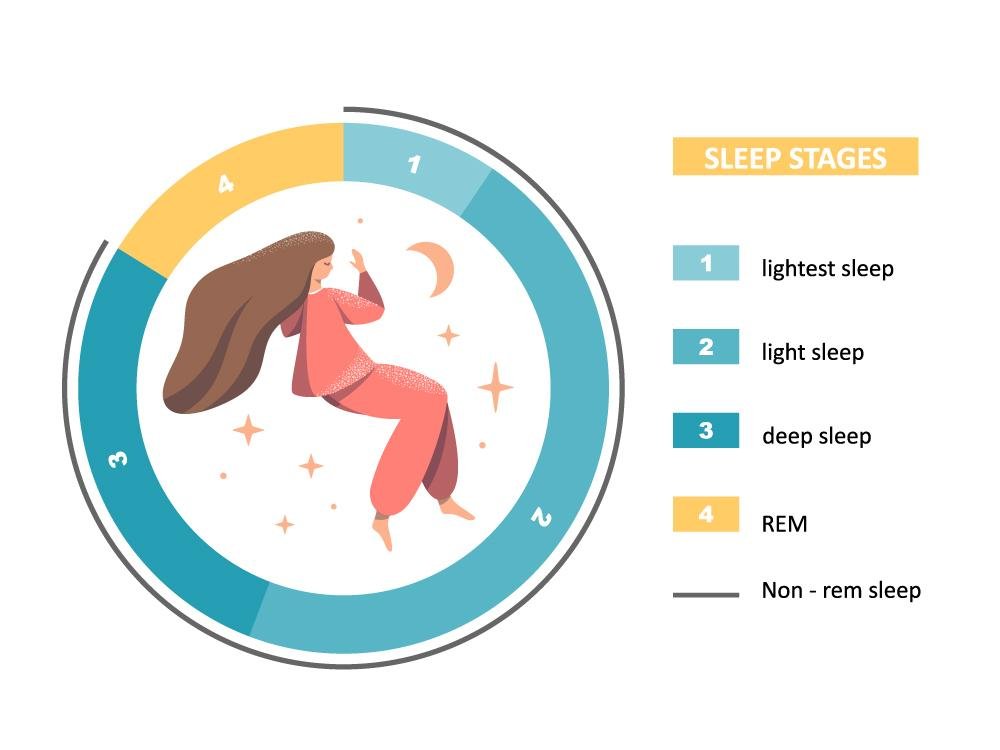
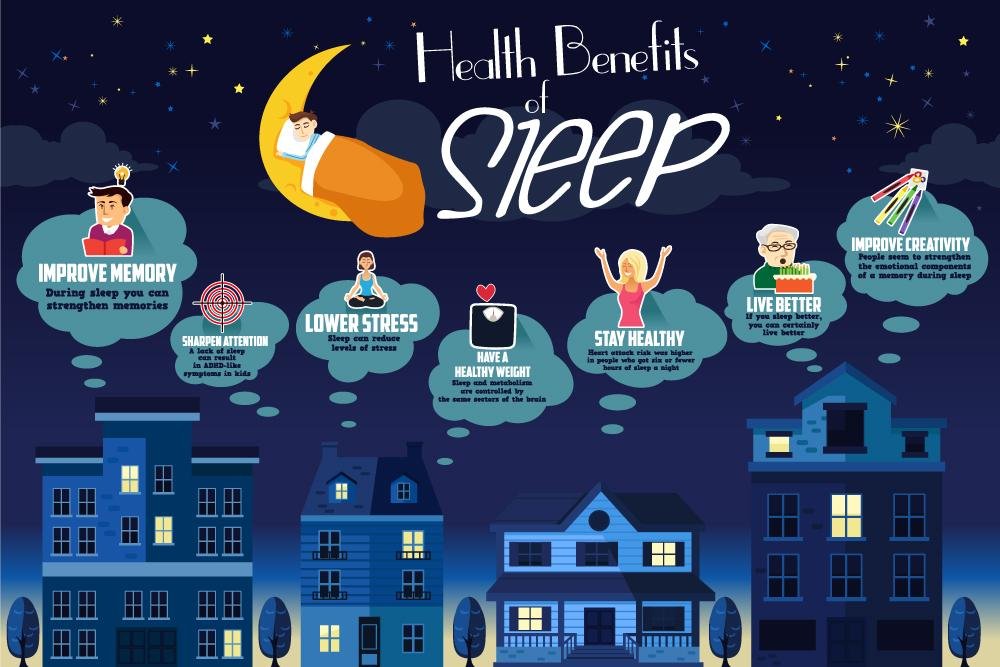


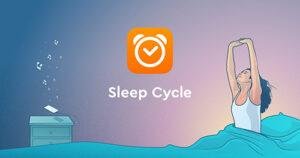


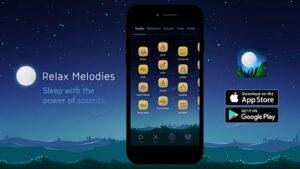
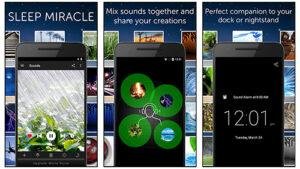



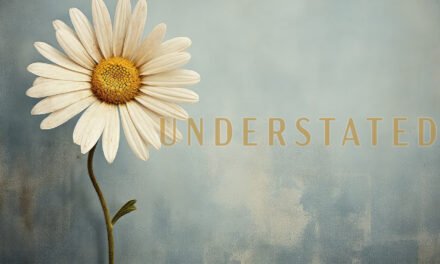




[…] simplified living space can promote better sleep, essential for physical and mental health. Research shows that a clutter-free bedroom can lead to […]